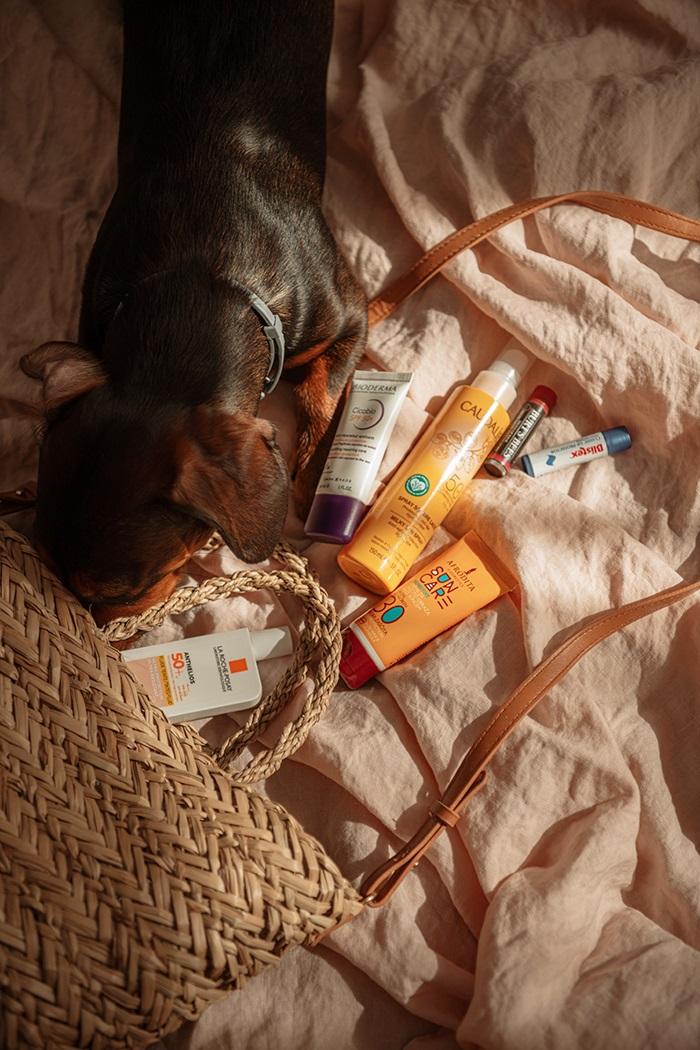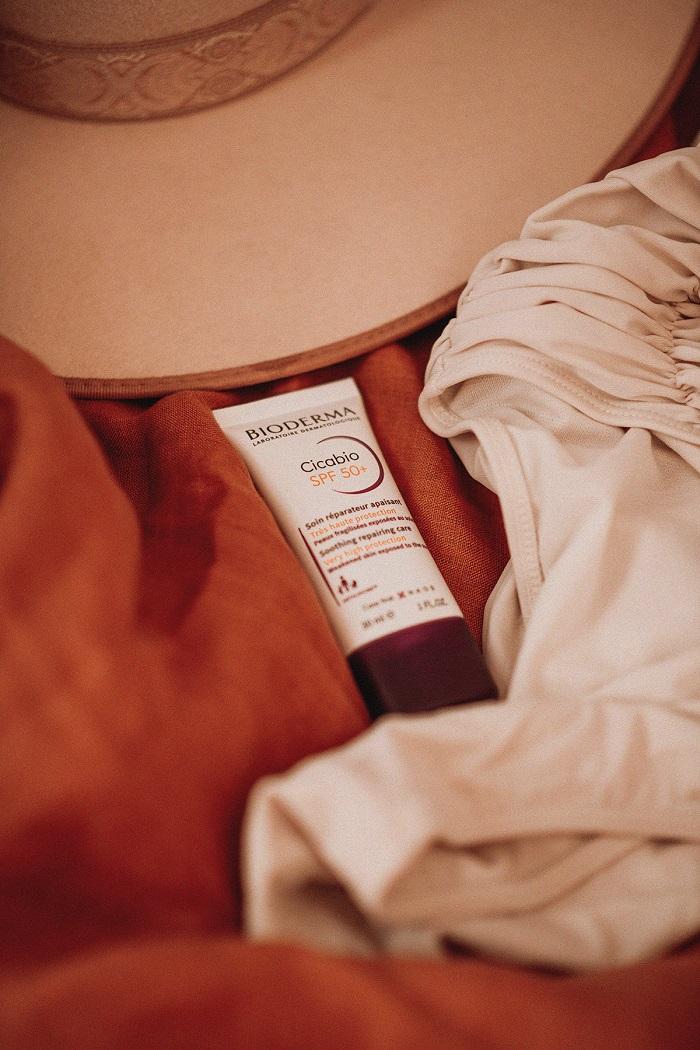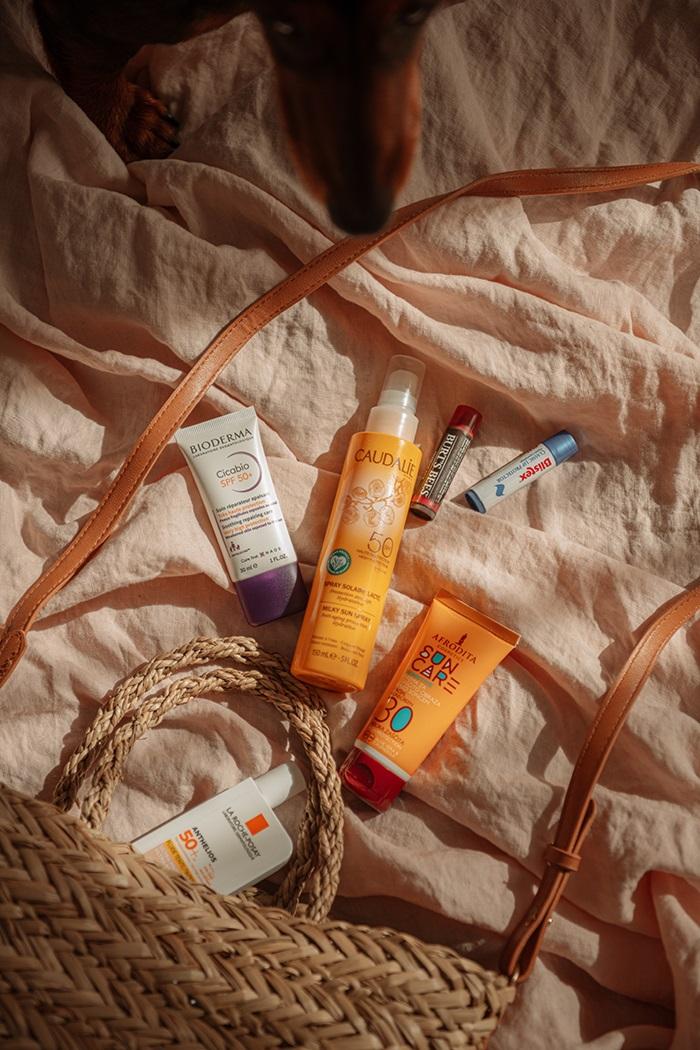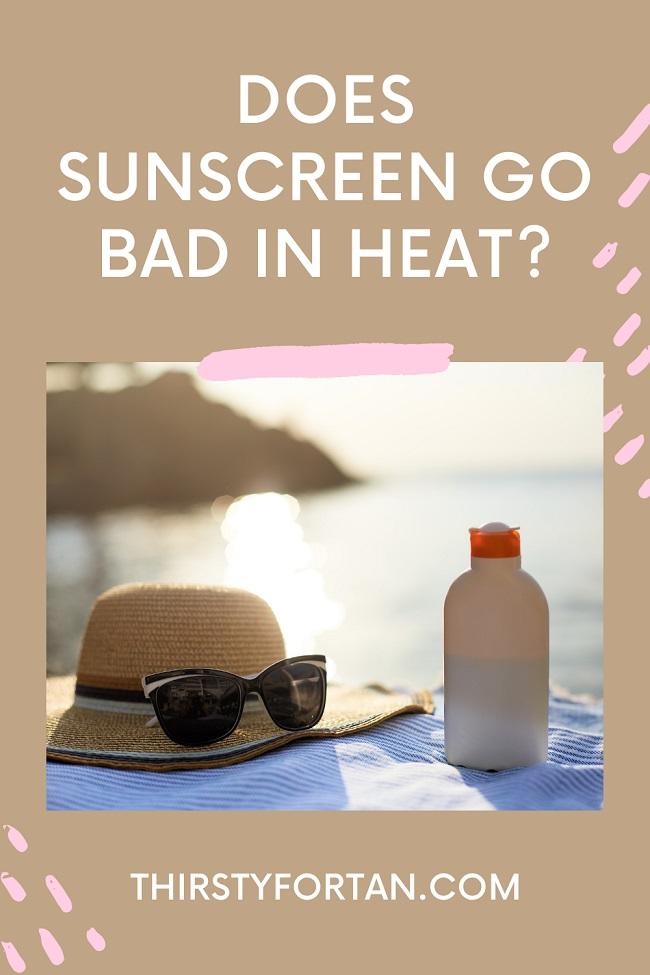Sunscreen is an essential whatever the weather, but particularly when it’s hot outside. So, it makes sense that you’d bring your sunscreen with you to top it up in the day, but what’s the deal with sunscreen and heat? Here’s everything you should know about your sunscreen on a hot day!
What ingredients are in sunscreen?
Before we answer the question of whether or not heat turns your sunscreen bad, it’s useful to know a little bit about the various ingredients and chemicals which make up a sunscreen. If a sunscreen does turn bad in the Sun, it’ll be the chemicals and ingredients inside it which will cause this, so let’s take a look at them.
Firstly, the most important, and main, ingredients in the sunscreen are the UV filters, as these are the ones responsible for blocking out the UV rays from your skin and creating a barrier between your skin and the light. There are lots of different UV filters, for both UVA and UVB rays, and some which even filter both, but they’re all important to the formula. You can also find a difference between the UV filters in a chemical sunscreen compared to a mineral sunscreen as they work in different ways, but some of these ingredients will overlap, too.
There are, of course, lots of other ingredients in sunscreens, just like any other product, but many of these are included for their benefit to the formula, such as preservatives, which keep the sunscreen’s shelf life, and thickening agents to create the product itself. It’s also common to find ingredients which bring some additional benefits to your skin, such as humectants and occlusives, two types of moisturising and hydrating ingredients, as well as some targeted ingredients to tackle skin concerns, like acne. While these ingredients are all still important to the formula, they don’t hold the same necessity as the UV filters do, and they can vary dramatically from individual product to product.
Does sunscreen go bad in heat?
So, we’ve seen a brief overview of some of the ingredients that actually make up the formulas, but we still haven’t had an answer to the question. There are lots of things which are affected by heat, and you may have even noticed that your sunscreen has seemed to melt into a thinner consistency after being in the Sun before, but does this affect the formula at all? Let’s find out.
In short, yes, the heat can shorten the lifespan of your sunscreen, and cause ‘damage’ to the ingredients and chemicals inside of it. The explanation isn’t very complicated or difficult to understand, making it reliable and easy for you to remember.
When you see certain chemicals and compounds melted and broken-down using heat, it’s clear to see that they change from one thing to another. For example, everyone will have seen an ice cube melt, and this is exactly the concept. When the ice cube turns into water, it is a simple example of something known as the chemical bonds breaking down inside of it, and the now liquid form of water has much weaker bonds than the ice did.
In the same way, a sunscreen turns bad in heat as the chemical bonds holding the product together are broken by the heat in the surroundings. When these chemical bonds are broken, certain parts of the product may not be as effective as they were before, and this can sometimes show when the product’s formula starts to separate, or even when it becomes a lot more fluid than it was before.
However, the effect of heat on your sunscreen may not always be obvious, which is why you should be careful when taking the bottle out with you, but we’ll talk about that a little more later. The reason for this, however, is because the major changes won’t only take place visibly on the product, but they can also involve chemical changes inside of the formula, involving the ingredients it contains. Some potential chemical changes can result in the product changing it substance a little, which carries a certain risk.
Can I still use a sunscreen after it’s gone bad?
Clearly, we’ve established that sunscreen can go bad in the heat, but what happens if you forget to put your precious bottle in the shade whilst you’re at the beach, or you completely forgot that it was still in your purse. Sunscreen can go bad, but is it okay to carry on using it? Although it’s obviously not ideal, as we wouldn’t recognise this as a problem if it made no difference, but does the sunscreen still do its job like it should?
The truth is that, as mentioned earlier, once the bonds have broken inside of the formula, there is a risk that the product won’t perform as it did before, due to the various chemical changes that could take place as a result of the heat. Although, it’s very difficult to detect some of these changes without taking a full examination of the formula in a lab or other professional environment to see what’s happened.
This means that you’re only going off of the information you can see yourself, or perhaps infer from other factors, but you’re probably not an expert, especially if you’re reading this, so you should be aware of this risk. In short, you may be lucky, and the sunscreen may not be altered in its formula, but there isn’t much way of telling this.
Some of the risks that come with this are that the sunscreen could cause you a reaction or rash of some type, or you could end up forfeiting the protection you thought you’d be getting from the product and suffering some sort of skin damage as a result – something which you’d definitely want to avoid. If your sunscreen has been exposed to the heat for a while, you should treat it like this is the case, and try to find a new bottle if possible.
- SUPERIOR ENDURANCE VS. SWEAT & WATER — From family fun to hardcore competition, Banana Boat Sport Sunscreen provides strong sun protection that stays on so you can play on
- CLINICALLY PROVEN UVA/UVB PROTECTION — This SPF 50+ broad spectrum sunscreen spray protects skin from the sun's harmful UV rays
- 3-fluid ounce travel size bottle of Neutrogena Ultra Sheer Dry-Touch Non-Greasy Sunscreen with SPF 70 for broad spectrum UVA/UVB protection
- This lightweight and sheer sunscreen is fast-absorbing with Dry-Touch technology for a non-greasy, matte finish that leaves skin feeling clean. The face and body sunscreen is formulated with Helioplex for superior sunburn protection for your skin
- EltaMD UV Clear Face Sunscreen is a lightweight oil free sunscreen made with transparent Zinc Oxide that leaves no white cast after applying and helps block damaging UVA and UVB rays from the sun
- Dermatologist recommended face sunscreen for acne prone skin is oil-free, protects against breakouts, and is an essential acne sunscreen for those with acne prone skin care concerns and other sensitive skin types like rosacea and hyperpigmentation
If you click Buy on Amazon and make a purchase, I'll earn a small commission at no additional cost to you.
Related:
Why Does Sunscreen Turn My Clothes Orange? (With Solutions)
Final thoughts
In conclusion, yes, your sunscreen does go bad in heat as the chemical makeup can be altered by this. This can result in the product’s efficacy decreasing, which would put your skin at risk of damage from the Sun’s rays, so you should be very careful and avoid exposing your sunscreen bottle to a high amount of heat if possible.








